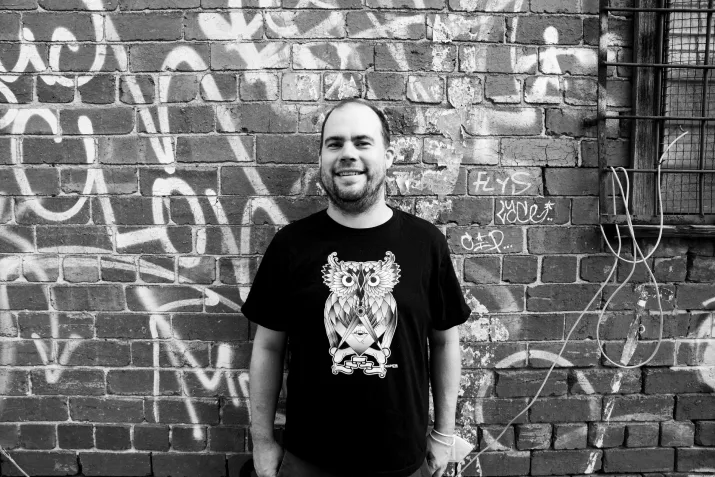
Introduction to Fine art
With an online fine art course, you’ll turn your passion for painting, drawing, or digital art into a paid career.
You’ll also discover a world outside the studio. Learn the history of your favourite styles, and gain the skills to critique and curate the art you love.
Start building your knowledge and portfolio with a short course, or dive deeper with a fine art degree. These courses are delivered 100% online by leading universities, which means you’ll have the freedom to keep working on the projects that matter to you while honing your craft.
Explore fine art courses
Discover fine art courses
Online fine art subjects and short courses
UndergraduateCUR-VAR110
- Study method
- 100% online
- Entry requirements
- No ATAR required. Start with a subject.
- Start dates
- Starts 2 Mar 2026, 31 Aug 2026
Next enrolment closes 22 Feb
Graduate Fine Art Studio Strategies
PostgraduateCUR-VSW520
- Study method
- 100% online
- Entry requirements
- No ATAR required. Start with a subject.
- Start dates
- Starts 2 Mar 2026, 31 Aug 2026
Next enrolment closes 22 Feb
Graduate Fine Art Concepts and Contexts
PostgraduateCUR-VSW600
- Study method
- 100% online
- Entry requirements
- No ATAR required. Start with a subject.
- Start dates
- Starts 2 Mar 2026, 31 Aug 2026
Next enrolment closes 22 Feb
Graduate Fine Art Studio Extension
PostgraduateCUR-VSW510
- Study method
- 100% online
- Entry requirements
- No ATAR required. Start with a subject.
- Start dates
- Starts 1 Jun 2026, 30 Nov 2026
Online fine art degrees
UndergraduateCUR-FIA-DEG
A fine arts degree for truly dedicated artists
Contribute to society’s artistic and aesthetic needs. Major in Fine Art for a demanding, but rewarding, profession as a fine artist. This art degree calls for a high level of creativity, self-discipline, dedication and a capacity for self-criticism.
- Study method
- 100% online
- Duration
- 3 years full time or part time equivalent
- Entry requirements
- No ATAR required. Start with a subject.
Bachelor of Visual Art (Visual Art Studio Practice)
UndergraduateUSQ-VSP-DEG
Become a professional visual artist
Fine tune your creative side and produce engaging visual pieces. You’ll study painting, printmaking, drawing, sculpture, and ceramics. Explore trends in new media and design. Think about how people experience art. Adapt. Innovate. Create!
- Study method
- 100% online
- Duration
- 3 years full time or part time equivalent
PostgraduateCUR-ART-GCE
Embrace your creativity and build your expertise
Prepare for creative industries and roles. You’ll choose from topics including creative writing and fine art. Get to know professional publishing. Consider creating online. Add new specialised skills to your resume and watch your career bloom.
- Study method
- 100% online
- Duration
- 6 months full time or part time equivalent
PostgraduateCUR-AFA-MAS
For professional fine art skills and expertise
Deep dive into the discipline of Fine Art. Unpack approaches to arts research. Consider the materials and methods of the artist’s studio. You’ll build up your portfolio with a series of artworks. Prepare for professional practice as an artist.
- Study method
- 100% online
- Duration
- 2 years full time or part time equivalent
Need help choosing the right course?
With 30+ years experience, our student advisors will call at a date and time that suits you to discuss:
- Choosing the right course
- Enrolling in and planning your studies
- Understanding your funding options



When would you like to chat?
Let me pick a time
Find a time that suits you for a free 1:1 consultation with a student advisor.
Call me anytime
A student advisor will call you, usually within 30 minutes during business hours.
Looking for other ways to start the conversation? Contact us
Student reviews
We support thousands of students on their study journey every year
Our advisors are here to help with your study goals from enrolment to completion 7 days a week.
Fine art study FAQs
What will I learn in a fine art course?
You’ll learn how to create, analyse, and present your works of art. Expect to cover different artistic styles, as well as research practices and art history.
What career opportunities are available after studying fine art?
When you study fine art online, you’ll gain the practical skills to kickstart your creative career. Your new opportunities may include:
Freelance artist
Curator
Arts administrator
Art director
Exhibition coordinator
Art critic
Overwhelmed with choice? Our friendly student advisors are always up for a chat to help you find an online fine art course.
Can I study fine art online, or do I need to attend in-person classes?
Most fine art courses you explore through Open University Australia can be completed 100% online.
There may be some options to combine online and on-campus study. When you browse fine art courses, select the ‘study method’ filter and match it to your preferences.
What types of assessments are included in a fine art course?
Assessments include essays, presentations, and portfolios. You could be making new artworks, or writing about the art you love. Online fine art degrees often include portfolio assessments, which means you’ll create and receive professional-level feedback on your art. You may also be tasked with writing a studio report, which gives you the chance to reflect on your creative process and the decisions you make in your work.
Explore fine art subject pages through Open Universities Australia to discover the types of assessment you’ll be submitting along the way.
Are there opportunities to exhibit my artwork during the course?
Depending on the course, you may have the opportunity to showcase your artwork in a final presentation, or do professional work placement in your creative field. Read the course description to learn more about how your artwork will feature in your study journey.
Can I specialise in a specific medium, such as painting, sculpture, or digital art?
Yes, and there are several ways to do it. Short fine art courses can boost your skills in a specific medium. If you’re after something bigger, look for a fine art degree that allows you to choose a major, and you could specialise in your favourite style while completing your qualification.
Is a fine art course suitable for a career in graphic design or illustration?
Yes. While some online fine art degrees offer subjects in illustration or digital design, you’ll also find courses dedicated to these practices. Feel free to widen your search from fine art degrees to graphic design courses, animation and visual design courses, and even film and TV courses!
No matter which course you choose, you’ll gain transferable skills to bring into almost any creative workplace.
Can I use my fine art course to become a freelance artist?
Absolutely. Once you’ve completed your degree, you’ll have the freedom to pursue the career path that’s right for you.
As a freelance artist, you may continue to enjoy the same flexibility you experienced while studying your online fine art course. This means setting your own hours, and structuring your workday around your needs—and around those bursts of creative energy!
What is the difference between a visual art vs fine art degree?
While both are focused on the fundamentals of art and design, it could be argued the main difference comes down to the medium and purpose of the art being created.
Visual arts can be centred on conceptual skills like photography, digital media, web design, sculpture, installation and more, while fine art embraces the idea of art for the pleasure of the viewer using mediums such as painting, drawing, ceramics and print.
Both fine art and visual art help you communicate concepts and ideas artistically, to experiment with a variety of mediums, and to discover your niche while developing your personal art practice.
Student stories and study advice

How to choose electives, plus hot new picks
When it's time to pick your elective subjects, where do you even start? We asked student advisors Jayde and Puja for their top tips.

Kori's journey: from dropping out of high school to getting a degree
Like many, Kori was taught that if you don’t graduate high school, you can’t go to university—so it was a life-changing moment when he spoke to a student advisor and discovered that this wasn't true.

Why you should study art online
Studying art online might sound hard to imagine. But there can be many benefits to exploring your creativity through a virtual university short course or degree.

Is it possible to make a career in the arts?
Artist and arts entrepreneur James Voller reflects on how he made it in this competitive and creative sector, and gives advice on how you can too.
We’re here to guide you to the right uni course

Open Universities Australia is a not-for-profit organisation helping every Australian to access thousands of university courses.
Over 543,927+ students have enrolled in university through us since 1993.
How we can help you
Studying through Open Universities Australia means we take care of the guesswork and administration of university study, so you can focus on learning.
You don't need a strong academic history to go to uni
We make it possible for everyone to start university through single subjects, regardless of ATAR or study experience. These subjects are covered by government loans, and can be used to upskill or gain entry into a qualification.
You have the flexibility to start at multiple points during the year
We’re not restricted by a traditional academic calendar, so you can enrol when it suits your life. You also have total control over how you study. You can scale up (or down) your study load and even pause your course if you need to.
You can rely on us as an unbiased destination for online tertiary education
As a not for profit, we have your best interests at heart. Our advisors are here 7 days a week to guide and support you. It’s our priority to get you qualified with the university of your choice.

























